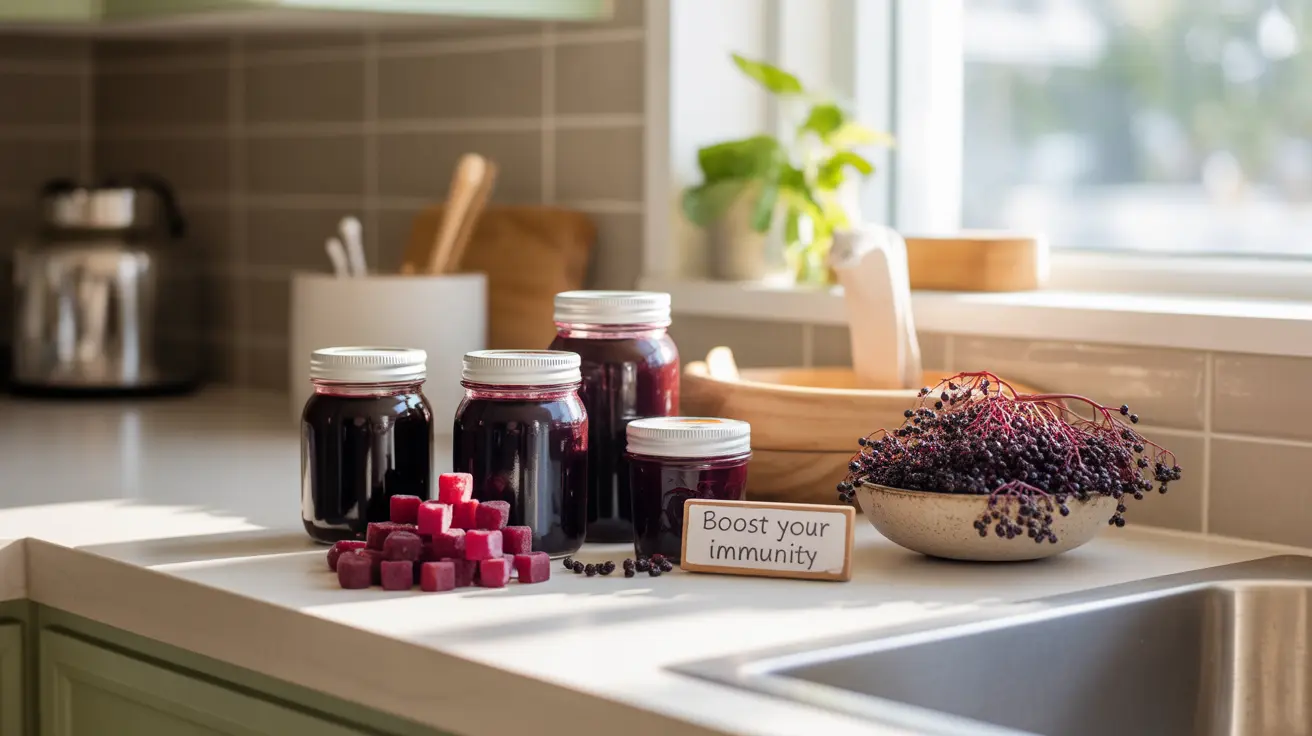Elderberry has gained significant attention in recent years for its potential health benefits, particularly in supporting immune function and fighting cold and flu symptoms. This dark purple berry, derived from the Sambucus tree, has been used in traditional medicine for centuries and is now available in various supplemental forms including syrups, gummies, and capsules.
Understanding both the benefits and risks of elderberry is crucial for making informed decisions about its use in your wellness routine. Let's explore what science tells us about this fascinating natural remedy and important safety considerations you should know.
The Science Behind Elderberry's Immune-Supporting Properties
Research suggests that elderberry contains powerful compounds called anthocyanins and other antioxidants that may help boost immune function. These substances have demonstrated antiviral properties in laboratory studies, particularly against different strains of influenza virus.
Clinical studies have shown that elderberry supplements may help reduce the duration and severity of cold and flu symptoms when taken at the onset of illness. The berry's immune-supporting properties appear to work by supporting the body's natural inflammatory response and helping to activate immune system cells.
Heart Health and Blood Sugar Benefits
Beyond immune support, elderberry shows promise in supporting cardiovascular health. The antioxidants in elderberry may help reduce inflammation and support healthy blood vessel function, potentially contributing to better heart health.
Some research indicates that elderberry might also play a role in blood sugar management. The compounds in elderberry may help improve insulin sensitivity and glucose metabolism, though more research is needed to fully understand these effects.
Safety Considerations and Proper Usage
While elderberry supplements can offer health benefits, proper preparation and usage are crucial for safety. Raw elderberries, leaves, and other parts of the elder plant contain substances that can be toxic and must never be consumed without proper processing.
Commercial elderberry products are carefully prepared to eliminate these toxic compounds. When choosing elderberry supplements, it's important to select products from reputable manufacturers that follow good manufacturing practices.
Recommended Dosage Guidelines
Dosage recommendations can vary depending on the form and concentration of elderberry product you're using. Common recommendations for supplements typically range from 150-300mg of elderberry extract daily for immune support. During acute illness, some practitioners recommend higher doses for short periods, but this should be discussed with a healthcare provider.
Potential Side Effects and Contraindications
While elderberry is generally considered safe when properly prepared, some individuals may experience side effects. Common mild reactions can include digestive upset or allergic responses. More serious concerns exist for specific populations, including pregnant women, those with autoimmune conditions, or individuals taking certain medications.
Frequently Asked Questions
- What are the health benefits of elderberry for colds and flu?
Elderberry may help reduce the duration and severity of cold and flu symptoms thanks to its antiviral properties and immune-supporting compounds. Studies suggest it works best when taken at the first signs of illness.
- Is it safe to eat raw elderberries or elderberry plants?
No, raw elderberries, leaves, and other parts of the elder plant contain toxic substances that can cause severe illness. Only properly prepared commercial elderberry products should be consumed.
- How does elderberry help support heart and blood sugar health?
Elderberry's antioxidants may help reduce inflammation and support blood vessel function, potentially benefiting heart health. It may also help improve insulin sensitivity and glucose metabolism, though more research is needed.
- What are the possible side effects and risks of using elderberry supplements?
Common side effects may include digestive upset or allergic reactions. The main risks come from improperly prepared elderberry or interactions with certain medications.
- Who should avoid using elderberry or consult a doctor before taking it?
Pregnant women, people with autoimmune conditions, those taking immune-suppressing medications, and individuals with diabetes should consult their healthcare provider before using elderberry supplements.
Remember to always consult with a healthcare provider before adding elderberry supplements to your wellness routine, especially if you have underlying health conditions or take medications.




